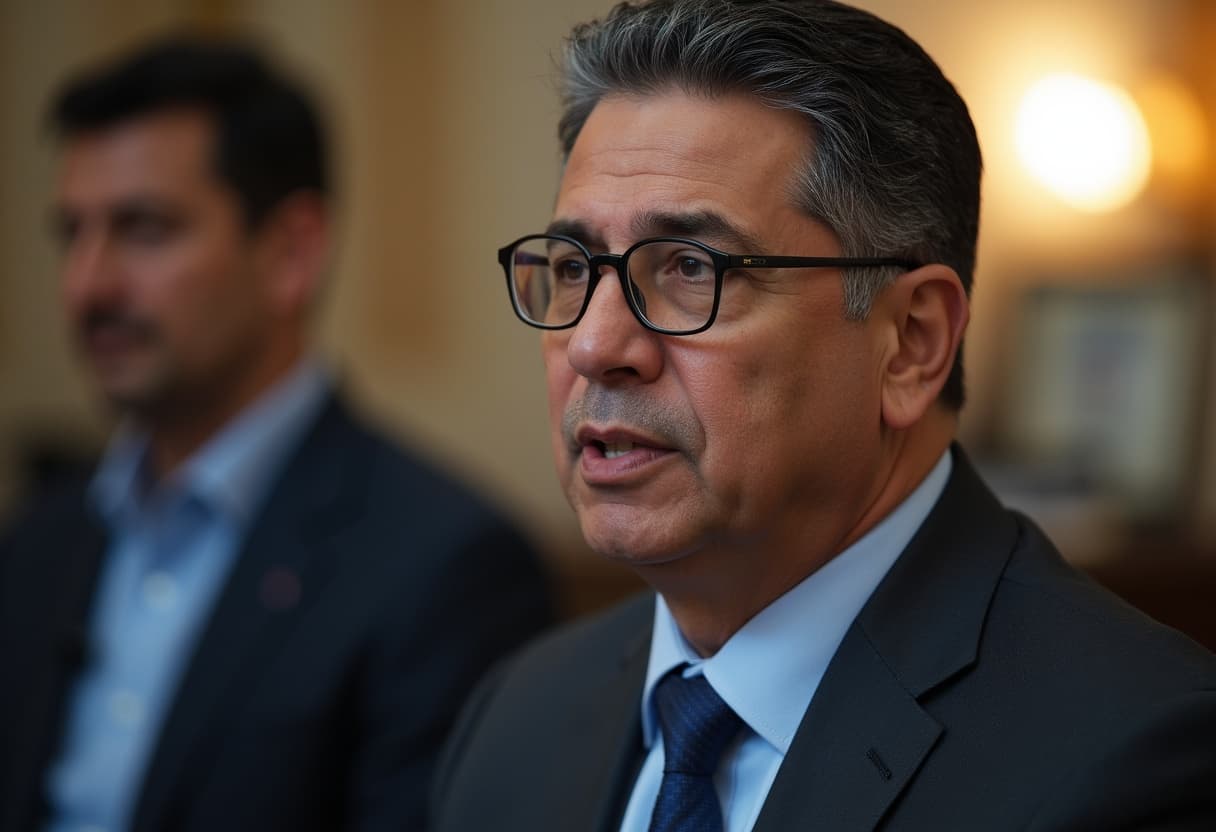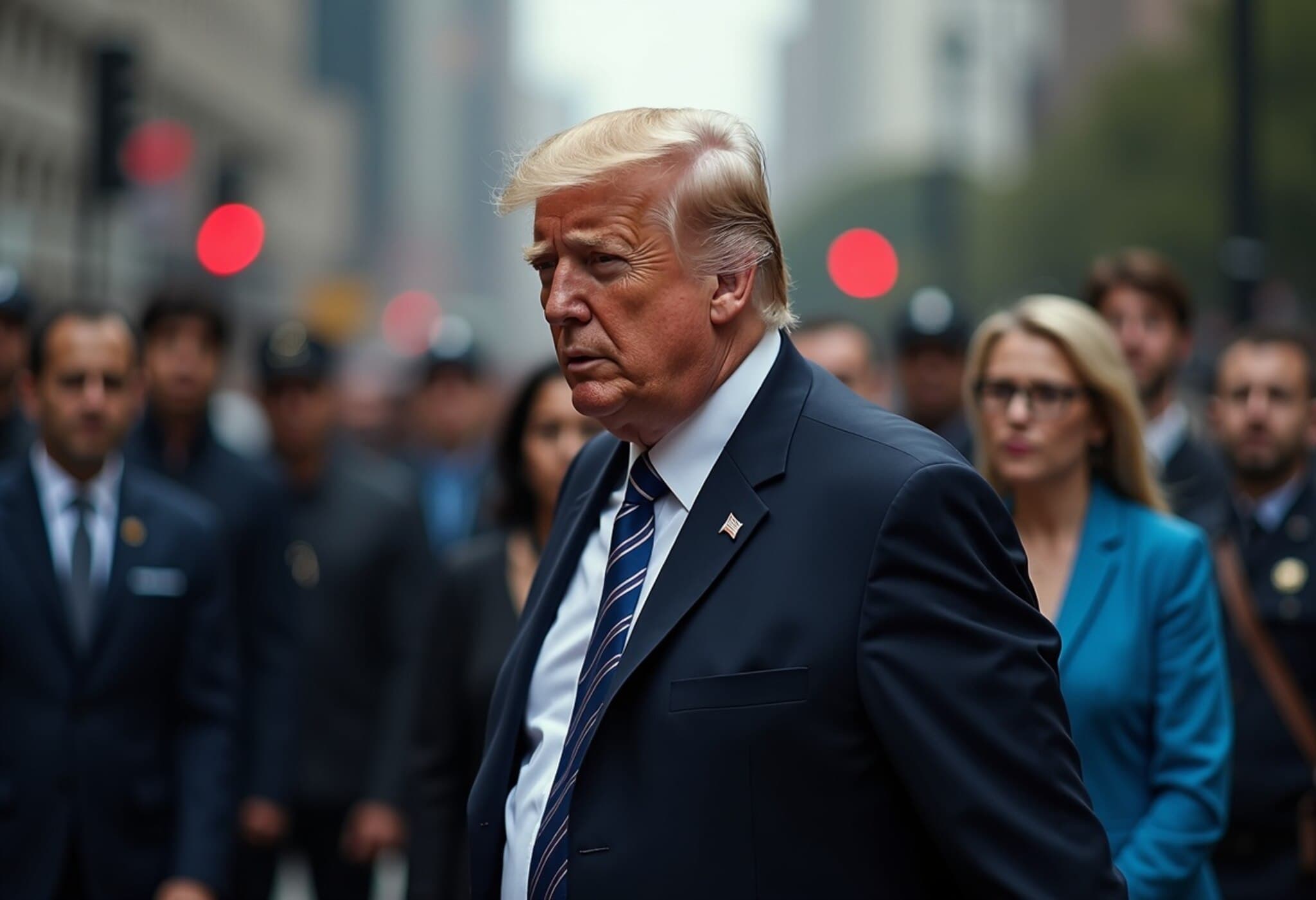US Government Moves to End Temporary Protected Status for Honduran and Nicaraguan Migrants
In a significant policy shift, the US Department of Homeland Security announced it will terminate Temporary Protected Status (TPS) for approximately 72,000 Hondurans and 4,000 Nicaraguans currently residing in the United States. Scheduled to take effect on September 6, 2025, this decision forms part of a larger initiative by former President Donald Trump’s administration aimed at dismantling deportation protections granted to numerous migrant groups.
Understanding Temporary Protected Status
TPS is a humanitarian program that grants deportation relief and work authorization to foreign nationals unable to safely return to their home countries due to natural disasters, armed conflict, or other extraordinary conditions. The TPS designations for Honduras and Nicaragua originated from the devastation caused by Hurricane Mitch in 1998, a catastrophic storm responsible for over 10,000 deaths and widespread destruction across Central America.
The Administration’s Justification
Homeland Security Secretary Kristi Noem highlighted in the official termination notices that both Honduras and Nicaragua have ostensibly made "significant recoveries" since the hurricane. She cited growth in tourism, increased real estate investment in Honduras, and expansion of Nicaragua's renewable energy sector as evidence of improved conditions that no longer justify the continuation of TPS.
This move is consistent with broader efforts during President Trump’s tenure to curtail TPS designations and reduce the number of protected migrants residing in the US. Similar terminations have been pursued for tens of thousands of Venezuelans, Haitians, Afghans, and Cameroonians with varying legal outcomes, including recent court rulings that upheld the end of TPS for Venezuelans but blocked the termination for Haitians.
Human Impact and Controversy
Democrats, immigrant advocates, and community organizations are sounding alarms over the potential consequences of this decision. Many argue that ending TPS could force thousands of people back into precarious and potentially life-threatening situations in their home countries, where poverty, instability, and violence persist despite economic improvements.
- Risk of Forced Returns: Migrants who have built lives, families, and careers in the US might face deportation to environments that remain unsafe.
- Economic Implications: US employers in agriculture, construction, and service industries often rely heavily on TPS holders for labor, creating concerns about economic disruptions.
- Community Strain: The termination threatens community cohesion and could lead to increased anxiety and uncertainty among affected families.
Legal Battles and Future Outlook
During Trump’s presidency, efforts to end TPS protections frequently met legal resistance, with courts blocking decisions on humanitarian grounds. The contentious battle over these designations continues, underscoring the complex intersection of immigration policy, humanitarian commitments, and geopolitical realities.
This latest move invites critical questions for policymakers and the public: How should the US balance immigration enforcement with moral responsibilities to vulnerable populations? What oversight mechanisms ensure that termination decisions are grounded in rigorous, current assessments of country conditions?
Expert Perspective
Immigration policy analyst Dr. Maria Alvarez comments, "The termination of TPS for Hondurans and Nicaraguans underscores a broader trend in US immigration policy towards retrenchment, yet it risks overlooking nuanced realities on the ground. Recovery statistics can mask ongoing systemic issues such as political instability and human rights abuses that continue to endanger returning migrants."
Legal experts also warn that mass deportations could face renewed challenges in courts, potentially leading to protracted litigation and uncertainty for affected communities.
Editor’s Note
As the US moves forward with ending protections for tens of thousands of TPS recipients, this story reflects deeper tensions surrounding immigration policy, humanitarian obligations, and national interests. The decision not only impacts migrants’ lives but echoes broader debates about America’s role as a refuge amid global crises. Readers are encouraged to consider how such policies shape community dynamics, labor markets, and international relations. The unfolding legal challenges and grassroots responses will be critical in defining the path ahead.



















